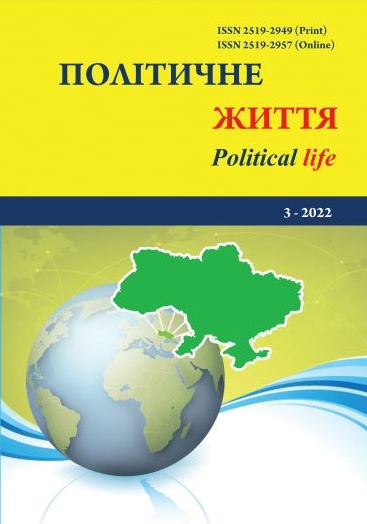Geopolitical importance of the Black Sea region in global politics
DOI:
https://doi.org/10.31558/2519-2949.2022.3.16Keywords:
global politics; Black see region; NATO; EU; Russia; Georgia; Ukraine; TurkeyAbstract
The issue of the Black Sea region security is becoming more and more relevant. It has always had an important geopolitical and strategic meaning. Exactly this region is a point where the interest of Russia’s and the West is intersected. It can be said that the Black Sea region is the place of competition between Russia and the West, as the two main players, for the future of Europe.
Researchers call this region "critical" which needs strengthening collective security and stability. While speaking about the Black Sea region, we mean eight different countries. They have different political tastes, interests and perspectives. Three countries are NATO members, and some are NATO partner countries. The two countries have a continuous conflict with Russia.
Considering the latter, it turns out that NATO has not only interests in the Black Sea region, but also an obligation to ensure security. Therefore, NATO cannot remain as a simple observer considering the actions carried out by Russia in the region. Considering the events developed in the last decade, the issue has become more relevant, as Russia has used military force several times against the countries of the Black Sea region since 2008 and is still carrying out military actions. There are new challenges present that the modern world has faced.
The frequently unsuccessful policy of both security and crisis management in the geographic division of East and West is not new. The existing security policy mostly refers to the prevention of threats and minimizing them, which is a particularly big challenge for Georgia, as our country has to implement the Western choice while dealing with the threats coming from the neighborhood.
In the process of studying the security issues of the Black Sea, we deemed it necessary to observe the evolution process of security as a concept, as well as a number of modern approaches in the field of security. A number of structural changes that have taken place in the architecture of world governance during recent decades, have gained our attention.
References
Avsajanishvili I. Black Sea Region, Actors and Interests. (Security Challenges of the Black Sea Region) Tbilisi, 2019.
Chitaladze A. Regional Security of the Black Sea, New Opportunities for Cooperation on the Front Line. research document, Vol. N7. Tbilisi. 2018. P. 3.
Dzidziguri N. Guideline on NATO and EU. Tbilisi, 2019.
Flanagan J. S, Binnendijk A, Chindea I. A., et al. Russia, NATO, and Black Sea Security. Santa Monica, Calif. 2020.
Frear T., Kearns I., Kulesa L. Policy Brief, Preparing for the Worst: Are Russian and NATO Military Exercises Making War in Europe More Likely? European Leadership Network. May be accessed on web-page: https://www.europeanleadershipnetwork.org/wp-content/uploads/2017/10/Preparing-for-the-Worst.pdf
Gamakharia J. the Security Issue of the Black Sea and the Montreux Convention. The article may be accessed on web-page: http://scara.gov.ge/2011-09-08-07-44-18/824--80-.html
Goginava B. Peculiarities of Regionalism in Latin America. (dissertation) Tbilisi, 2020.
Kuprashvili H. National Security or National Safety?! "Universal" publishing house. Tbilisi, 2014.
Lagrone S. U.S. Destroyer Enters Black Sea for First Time in 2016. USNI News. Accessed June 10, 2018. May be accessed on web-page: https://news.usni.org/
Maisaia V., Maghradze G. International Politics of the 21st century and the "Theory of Cooperative Security" Myth and Reality, regional and global aspects. Tbilisi, 2017.
Nato Warsaw Summit communique, 2016. document may be accessed on web-page: https://www.nato.int/cps/ic/natohq/official_texts_133169.htm
Neumann I. A Region-Building Approach. In Soderbaum, F., & Shaw, T. (Eds.) Theories of New Regionalism. New York: Palgrave McMillan. 2003.
Palmer N. D., Ferkins H. C. International Relations. Delhi: C.B.S. Publishers and Distributors. 1994.
Papava V. “One Belt, One Road" Initiative and Georgia. Tbilisi. 2017.
Sandres D. Maritime Pover in the Black Sea. Pg.1-2 (Kings College, London )
Sepashvili E. Georgia’s Cooperation in BSEC (bulletin N47) February, 2001.
Weaver C. The Politics of the Black sea region, EU neighbourhood conflict zone of future security community? (University of Leicester, UK).

